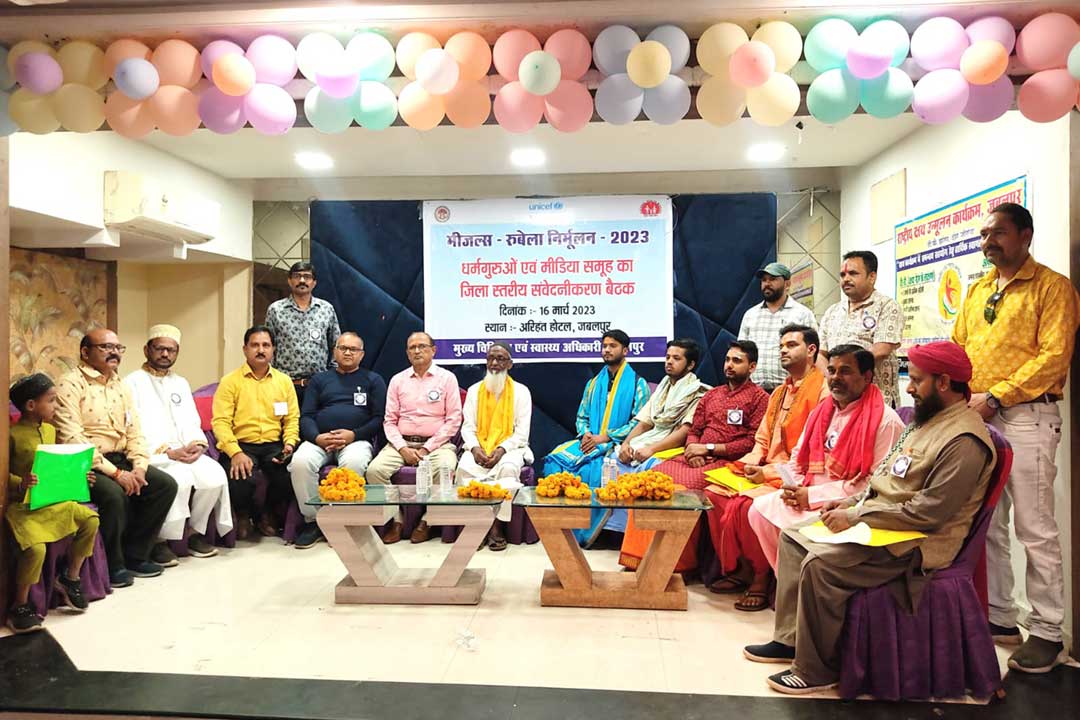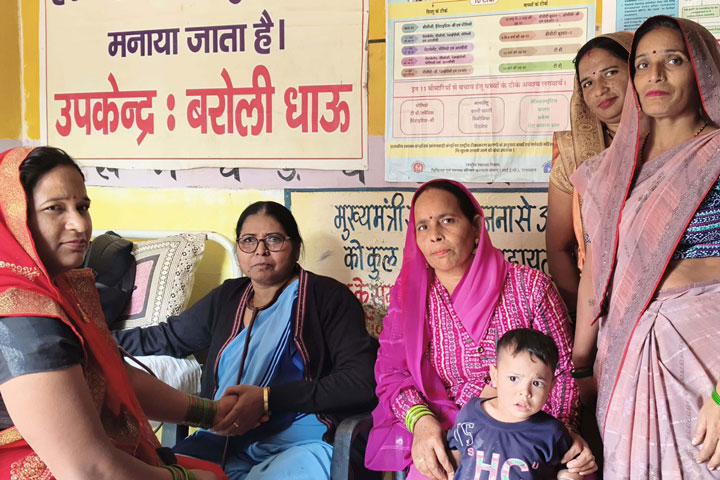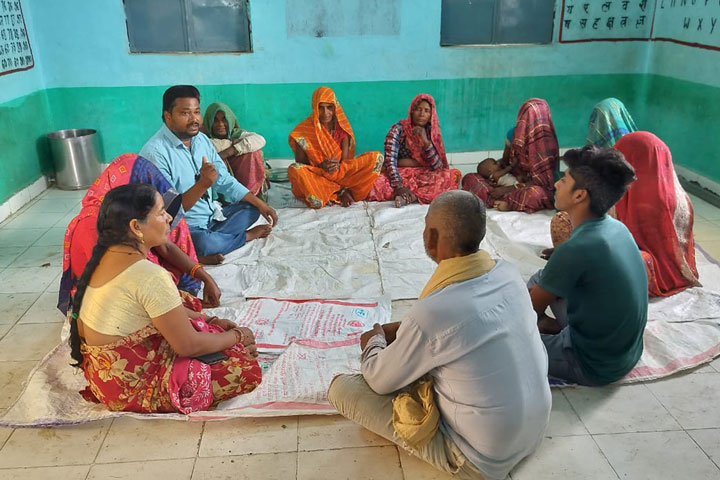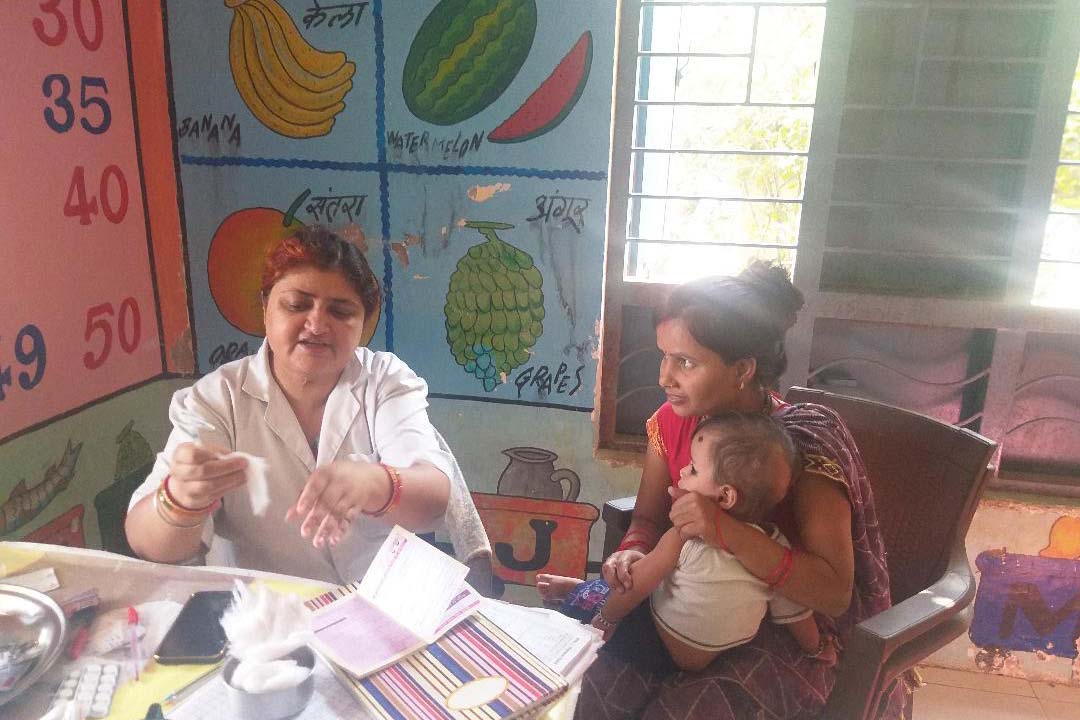Faith leaders join hands with health department to outflank measles in India’s Madhya Pradesh
State health officers think they’ve found the right people to preach the benefits of vaccination.
- 10 May 2023
- 4 min read
- by Shuriah Niazi , Gavi Staff

Imam Hafiz Mahfooz had just finished delivering the Friday sermon at Fauji Masjid, a mosque in the central Indian city of Jabalpur, when he abruptly changed tack and began to address a decidedly worldly concern: disease control.
If one was sick, he told the congregants, treatment needed to be taken – but if one took precautions, one could avoid sickness altogether. In fact, he advised, it was a matter of responsibility to one's best to protect children from infectious diseases like measles by getting them vaccinated.
“We are trying to send this message to the people that treatment is available even before the disease strikes – and you should avail it.”
– Hafiz Mahfooz, imam
"We are trying to send this message to the people that treatment is available even before the disease strikes – and you should avail it," Mahfooz said.
This was a Muslim-dominated enclave of the city and Mahfooz's words, charged with the authority of his religious office, were bound to carry weight. It was also, according to the Imam, an area where vaccine uptake was lower than average. "We see more negligence among the Muslims. They don't get their children vaccinated," he said. "Not only their children have to face trouble, but the whole family is troubled because of this."
Have you read?
It wasn't an idle warning. COVID-19 had taken a toll on immunisation coverage rates across India, with an estimated 2.7 million children countrywide not receiving even a single dose of the most basic childhood vaccines in 2021. Since then, a number of Indian cities have battled measles outbreaks.
Madhya Pradesh (MP), the central Indian state that is home to Jabalpur, has not been spared. In just the first quarter of this year, 203 cases of measles have been reported statewide, with 143 of them cropping up in just the month leading up to 6 March.
That cluster was spread across just four districts, one of which was Jabalpur. According to State Immunisation Officer Santosh Shukla, 80% of the sick children were unvaccinated, while the remainder have received just one dose of the recommended two.
As Shukla told VaccinesWork, "We made a plan under which religious teachers are reaching out to people. The government is making all kinds of efforts to convince the people, but when the leaders of their own religion tell them about the measures to prevent the disease, then people understand easily, and follow the advice."
"We explain to the crowd gathered in the temple that they are committing a big mistake if they are not getting their child immunised.”
– Shankhu Dwivedi, temple priest
On the other side of Jabalpur, Sri Ramlala mandir was busy with Hindu devotees. Temple priest Shankhu Dwivedi said, "Through our temple, we are spreading awareness among people how they can save their children from diseases like measles. We explain to the crowd gathered in the temple that they are committing a big mistake if they are not getting their child immunised."
According to Dwivedi's observations, poorer people are less likely to seek vaccination for their children than their better-off counterparts. That's particularly troubling during a measles outbreak, because measles infection has been proven to be a more threatening condition amid the crowded living and poorer nutritional statuses often associated with urban poverty.
It isn't only lack of awareness that's hampering state immunisation efforts, health officials say, but the proliferation of myths and misinformation. In many areas of the state, non-scientific disease-control methods ranging from bogus herbal cures to religious propitiations and even exorcisms are performed in place of tried-and-tested preventive medical interventions.
Measles is a virus that targets the immune system, leaving patients vulnerable to life-ending or life-altering complications. But the vaccine is good: if 95% of a given area's population receive both doses, elimination of the disease is in sight.









